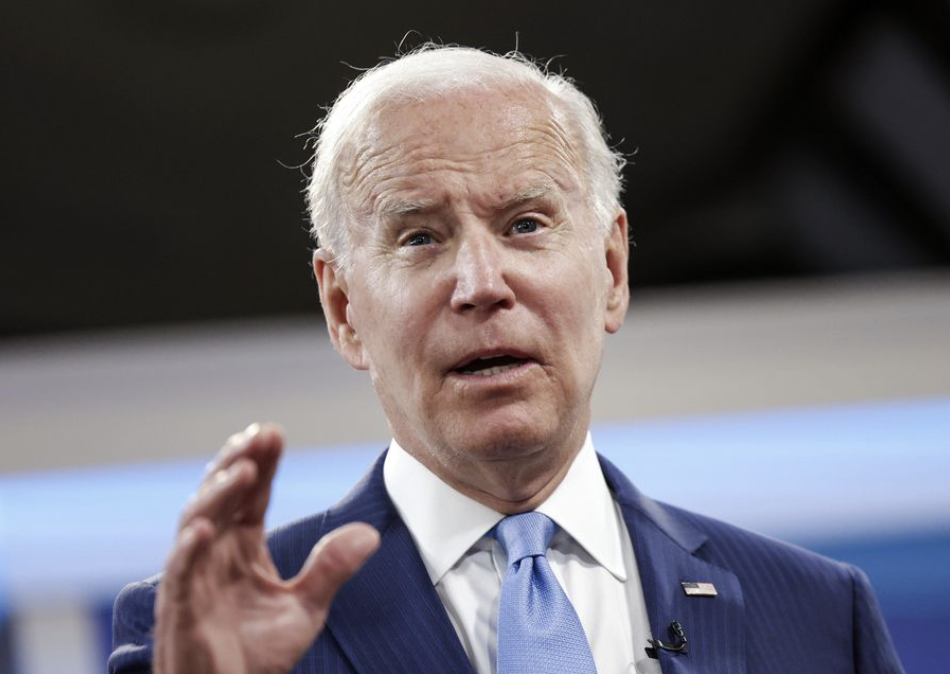By: The Editorial Board – wsj.com – June 1, 2022
The White House is finally conceding that it made a political mistake in underestimating inflation, with some officials even offering a modified, limited mea culpa. We suppose that’s progress, but the return of soaring prices after a 40-year hiatus is also an historic policy failure that is worth recounting. It represents a failure of progressive expertise that is a lesson for the future.
“I think I was wrong then about the path that inflation would take,” Treasury Secretary Janet Yellen told CNN on Tuesday, referring to a 2021 comment that there was a “small risk” of inflation. “There have been unanticipated and large shocks to the economy that have boosted energy and food prices and supply bottlenecks that have affected our economy badly that I, at the time, didn’t fully understand, but we recognize that now.”
Note the default to “large shocks” that were “unanticipated.” This is a way of blaming inflation on Ukraine and pandemic supply-chain issues that ducks the role played by the Biden Administration’s policies. The implication is that no one anticipated those problems or the inflation they could cause.
The truth is they were anticipated, and many people did warn about inflation. Some of those warnings appeared in these pages from conservative economists. Prominent Democratic economist Larry Summers also warned in March 2021 that too much spending and easy monetary policy could spur an excess of economic demand over supply.
Why were those warnings ignored? The answer is a combination of politics and mistaken economic models. Democrats ran all of Washington and wanted to justify a huge expansion of the welfare state. Their economic household remedy is always more government spending and easy monetary policy. Most of the press endorsed the Democrats’ $1.9 trillion spending blowout in March 2021 as necessary, though the economy was growing rapidly at the time.
While the Federal Reserve was making its monetary mistakes, progressives didn’t object. They embraced the fad of Modern Monetary Theory that low interest rates could finance any amount of government spending more or less forever.
All of this has been another failure of progressive economics. By focusing solely on macroeconomic demand, while ignoring supply-side and regulatory bottlenecks, their policies fueled the inflation we have today. They also ignored the role of excess money, forgetting economist Milton Friedman’s famous lesson. As President Biden declared in an April 2020 interview, “Milton Friedman isn’t running the show anymore.” That is one campaign promise he has kept.
Progressives pushed the same agenda for months even as evidence of inflation became too obvious to ignore. Inflation was supposedly “transitory.” The White House kept pressing its Build Back Better (BBB) plan for nearly $5 trillion in new spending—and even claimed it would be a cure for inflation.
No fewer than 17 Nobel prize winners in economics endorsed all this in a remarkable “open letter” last September. The White House broadcast the letter far and wide, and Mr. Biden referred to it often as an appeal to authority. “Because this agenda invests in long-term economic capacity and will enhance the ability of more Americans to participate productively in the economy, it will ease longer-term inflationary pressures,” said the letter.
We list the names of the letter’s signers nearby. They are all notable economists, and some have written for these pages. Since BBB didn’t pass, they can say the predictions in their letter were never tested. But their inability to see in September that inflation was already rising fast makes their claims almost worse as a failure of expertise. Annual inflation hit 6.2% in October last year and is now above 8%.
To see this article and subscribe to others like it, choose to read more.
 Listen Online
Listen Online Watch Online
Watch Online Find a Station in Your Area
Find a Station in Your Area









 Listen Now
Listen Now Watch Online
Watch Online
